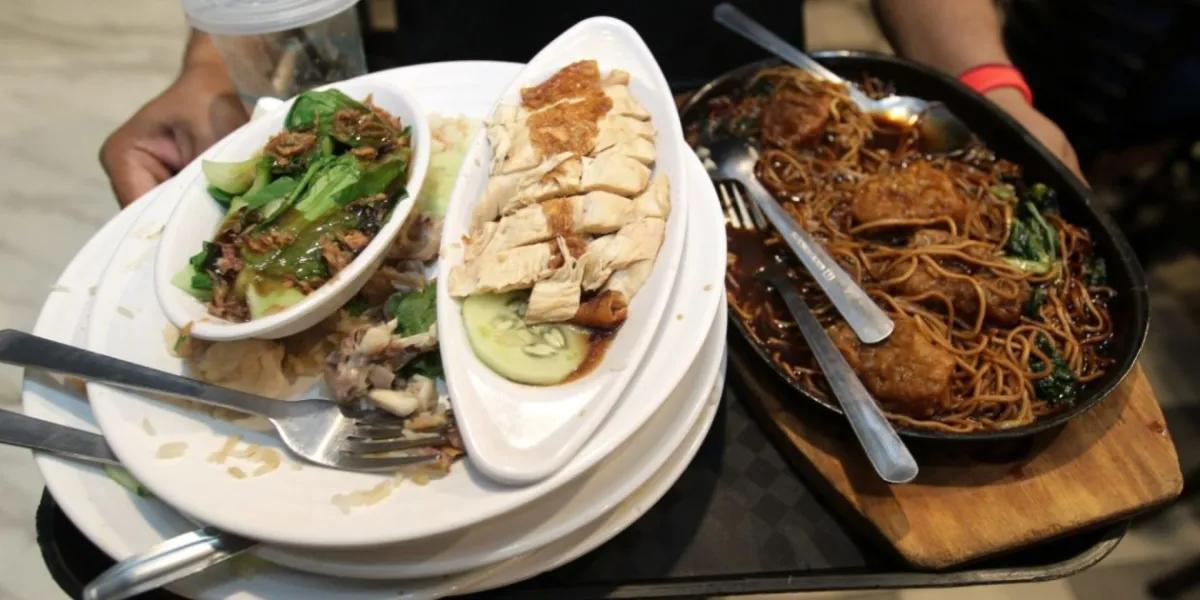Malaysia is drowning in uneaten food – 6 steps you can take to help stop food waste
I must admit that I hesitated before putting pen to paper this month, because so much has been written and said about food waste – in this newspaper, in other media, by advocacy groups and others – that I wondered whether there is anything I can usefully say.
But food waste is a really serious element of the planetary health crisis and one of the issues that we have the most power to change by our individual behaviours. So let me start with some often-quoted facts and figures:
Globally, somewhere around 40% of food that is produced for us is never eaten. It is simply thrown away.
On average, Malaysian households throw away around 25% of the food we buy in supermarkets. So with the average family spending around RM900 on food each month, that means around RM225 goes in the bin, and more often than not to a landfill.
When you add other forms of food waste such as that produced by restaurants, supermarkets and other sectors, out of the 38,000 tonnes of trash we throw away every day, more than 16,000 tonnes is food – around 45% – which is way above the global average.
In 2019 the Solid Waste Management and Public Cleansing Corporation’s deputy chief executive officer Mohammad Diah Wahari said that the amount of food waste generated in Malaysia is enough to feed 12 million people three times a day.
On top of that, the amount generated rises by about 15% to 20% during festive seasons. What is even more shocking is that this figure rose sharply during the last Ramadan, with more single-use plastic and food waste being discarded during this festive season than ever before in our recorded history.
Most of this food waste ends up in landfills – chucked away with other trash and left to rot in the ground. There it starts to release gases, including methane – one of the most virulent and destructive greenhouse gases, three times more deadly than carbon dioxide. Food waste also releases toxic chemicals into the soil which poison the groundwater we drink, pollute our rivers, endanger wildlife and, ultimately, our own health.
Looking at it through a planetary health lens, food waste is really bad for the planet. It takes a land mass larger than China to grow the food each year that we then throw away. And this is land that has been deforested, species that have been uprooted or driven to extinction, indigenous populations that have been forced to move, soil that has been degraded – all to produce food that never gets eaten.
In addition, growing and processing wasted food accounts for 25% of all freshwater consumption globally.
This is another example of how our actions impact the planet and how the planet’s reaction impacts our health. We need to act because so much of the waste that is generated comes from households rather than elsewhere in the supply chain – from us, you and me. Our throw-away culture now affects all areas of life.
I have already written on the problems of plastic pollution and what we can do. It’s the same with food. There are concrete actions we can all take individually which will help to reduce food waste.
- To begin with, try keeping a food waste journal: note down what you are throwing out and see if there are patterns that you repeat. Once you identify those patterns, modify your buying habits accordingly. > Take a “shelfie” photo of what’s in your fridge before you go shopping so that you don’t impulse buy stuff that’s already in the house.
- Make a list of what food items you need and stick to it when you shop.
- Research what businesses are doing to address food waste: Lots of restaurants and grocery stores are starting to make strides in sustainability as environment and social governance gains traction. Get to know which ones in your area are working to prevent food waste. Ask businesses if they donate excess food to feed the hungry or if they compost their kitchen scraps. Let them know you appreciate their work by patronising their establishments. Some might be surprised by your questions, but raising the issue raises awareness and starts the conversation. Search for “sustainable”, “slow food”, “zero waste” and “green” restaurants to find sustainable businesses in your area.
- Start a food waste campaign in your community. Talk to people at your local school and mosque/religious organisation and at work and see if you can find some like-minded people to come together and take action, looking for ways to prevent and reduce waste, like donating extra food from cafeterias or meetings to shelters or starting a composting programme.
- Tell your representatives that food waste is an important issue. Let your elected officials know that the food waste issue is important to you. Make use of freely available statistics like these at pppp.my/malaysian-food-waste to back up your argument and to remind them that their colleagues working for the government on waste management are sounding the alarm bells.
Planetary health is about addressing the consequences of humanity’s impact on Planet Earth for a better future. Like all the other aspects of the planetary health crisis we are facing, we need to stop “othering” responsibility for food waste. It is generated primarily by us, and we have the power – individually and collectively – to recast the relationship between people and planet through our actions. It’s time for change.
This article was published in The Star Online. Read it here.




